Your cat’s poop can reveal many things, such as whether or not they have intestinal parasites. But when you start seeing black poop or grey poop it may be time to feel a little worried.
Grey cat poop can be caused by health problems like pancreatitis or biliary issues, but it can also be caused by poisons.
If you are concerned that your cat’s poop is grey we recommend you speak with a vet.
JustAnswer allows you to talk in real-time to veterinary experts for a small fee.
Reasons Why Your Cat’s Poop May Be Grey:
1. Physiological Reasons
Did you know that your cat’s faeces can turn grey as time goes by and they basically become petrified?
Obviously, a cat’s poop should be brown.
However, if you don’t throw it out by scooping it from the litter box and you leave it there for more than a week, it will become dehydrated.
The grey colour in this case would be very light, more towards white.
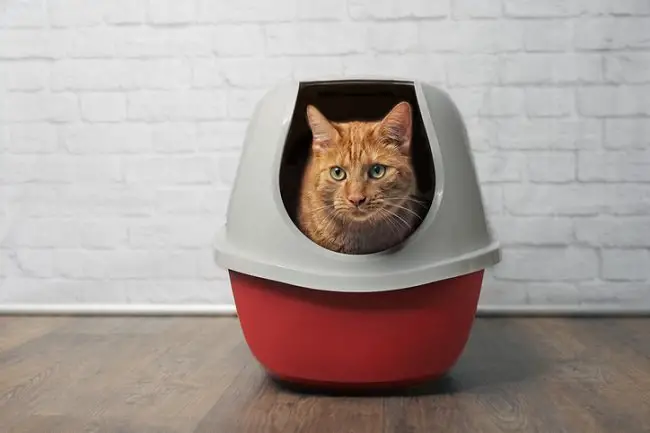
But what this means is that your cat isn’t actually suffering from any health complications and that you should probably do a better job of scooping out your cat’s poop from the litter.
2. A Biliary Obstruction
The cholecyst, also known as the gallbladder, is a small and hollow organ that’s effectively attached to the liver and that largely influences a cat’s digestion.
For example, cats that may have gone through a cholecystectomy, where the gallbladder is removed through surgery, may need a special diet so that they can properly digest food.
They may also need to take medication for the remainder of their lives, sometimes in the form of artificial bile or bile extracted from other animals.
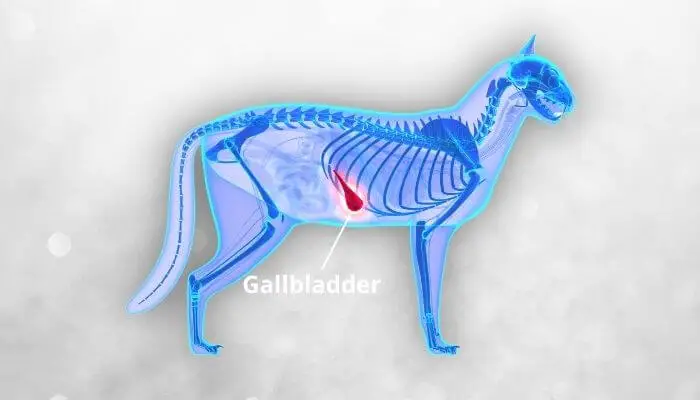
Whenever the gallbladder becomes obstructed because of a calculus, your cat’s poop will start to look different.
Sometimes, biliary obstructions can be life-threatening and may cause additional health problems.
If there is no way for the biliary secretions to be eliminated into the digestive tract through the biliary duct, your cat may risk developing jaundice, inflammation in other organs, as well as hyperbilirubinemia.
One of the first symptoms of a possible biliary obstruction is grey cat poop.
Be aware in some cases yellow cat poop can also be indicative of gallbladder issues.
3. Digestive Infections
Grey poop can be caused by gastrointestinal health issues, too.
Some bacteria and other microorganisms can influence the flora and even the gut contents to such an extent that they can change your cat’s normal poop colour.
If your cat has a digestive infection, they may need to be treated with antibiotics after the vet performs an antibiogram.
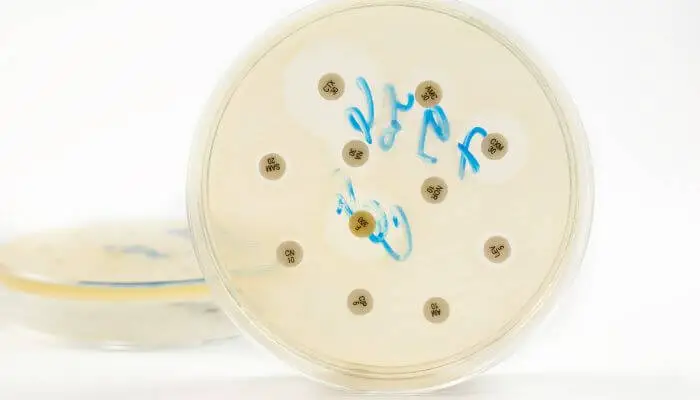
For this reason, our best piece of advice for you would be to take them to the animal hospital as soon as possible if you notice this symptom.
Green cat poop is also a common indicator of digestive infections.
4. Pancreas Health Issues
While cats do not develop pancreatitis as commonly as their canine counterparts do and even for the same reasons, that doesn’t mean that this organ is likely to remain healthy throughout their lives.
The pancreas is an extremely sensitive organ and it can easily get damaged.
It has an essential role in ensuring a cat’s normal digestion, but it also regulates your pet’s blood sugar levels by producing insulin.
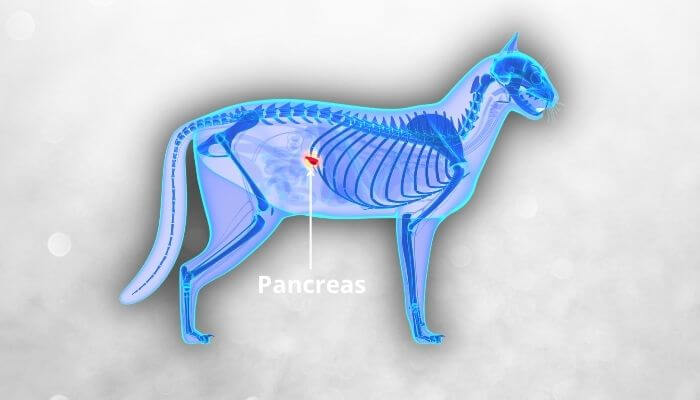
And while cats may not develop pancreatitis because of a fat-rich diet as dogs can, they can do so because of toxins such as pesticides, insecticides, rat poison, and more.
Parasitic infestations may sometimes influence the health of your cat’s pancreas, mainly one involving Toxoplasma gondii.
Grey cat poop can be one of the symptoms that your cat develops if they have any pancreas condition.
How To Treat Grey Poop In Cats?
First of all, grey faeces remain only a symptom until a diagnosis is made by a veterinary professional.
If you are concerned that your cat’s poop is grey we recommend you speak with a vet ASAP.
JustAnswer allows you to talk in real-time to veterinary experts for a small fee.
Treating cats symptomatically just because they are showing a specific clinical sign is not the best way of going about things, so the vet will aim at discovering the cause of all this.
When you take your pet to the clinic, the veterinarian will perform a physical examination and determine whether the cat has pain in particular abdominal areas, for example.
They will also measure your cat’s body temperature, perform a complete blood count, as well as biochemistry.
They may also ask you to collect some urine from the litter box so that it can be analysed at the lab.
An ultrasound could provide important information regarding the health of your pet’s internal organs, including their liver and pancreas.
The vet will ask you whether your cat has recently been exposed to some toxins, if they tend to roam the neighbourhood when you’re away from home, and if they may have been fed by other people.
Once the vet reaches an accurate diagnosis, they will initiate treatment with the appropriate medication.
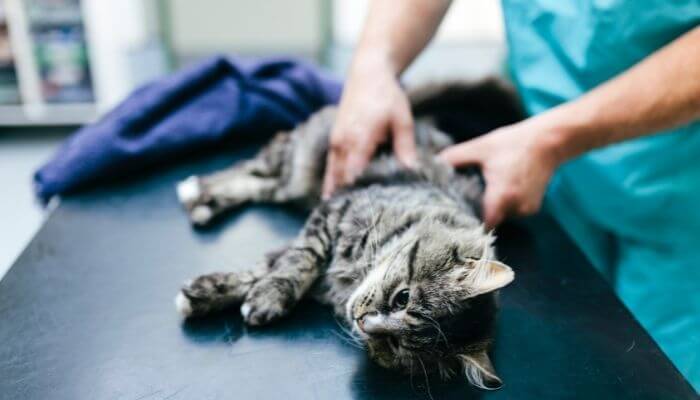
Until the cause is discovered, your cat can’t receive more than anti-inflammatory medication, digestive stabilisers, fluids to prevent dehydration, and perhaps a broad-spectrum antibiotic if the vet finds that it’s absolutely necessary.
Biliary obstruction can be treated with the removal of the gallbladder, although this is a procedure that is rarely performed in cats.
Gallstones can sometimes be treated with liver and gallbladder medications especially if they aren’t yet blocking the bile duct.
As for treating pancreatitis, your cat may have to be hospitalised for a couple of days until they are stabilised.
They will then receive specific digestive enzymes along with pain medications.
The bottom line is that until your cat is diagnosed, they cannot receive the specific treatment for the health issue that is causing their poop to be grey.
Light Grey Cat Poop
Light grey is a colour that’s most likely to occur because of a biliary disorder.
Although it can be caused by other factors, a gallbladder condition is at the top of the list of possibilities.
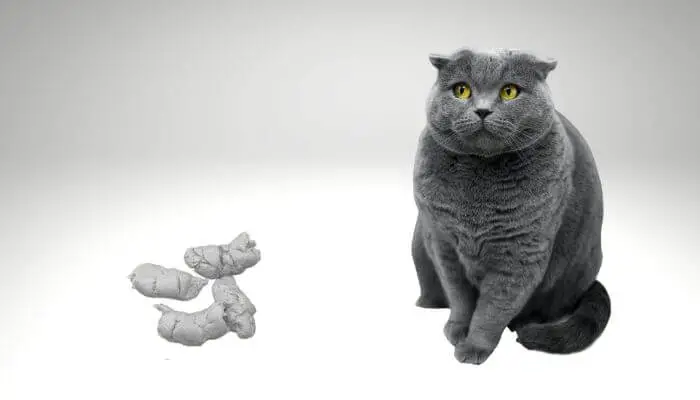
Grey Runny Cat Poop
Despite this symptom possibly being triggered by some of the factors that we have already mentioned, it appears that the most likely one in this case would be a Coccidia infection.
Coccidia is a parasite that you can’t see with the naked eye, which is why lots of kittens and adult cats may not be treated for it.
A faecal sample along with a faecal examination can identify the parasite so that the vet prescribes you the right treatment.
Grey runny cat poop can be an emergency if you are caring for a young pet.
The same rule applies for seniors and pregnant cats, both of whom have immune systems that aren’t fully equipped to handle the abuse of this parasite.
We’d also like to note that while some cats have grey to white diarrhoea because of Coccidia, the poop of others can be grey to yellow.
Cat Poop Clay Coloured
This type of colour and consistency can show up whenever your pet has developed a pancreatic, gallbladder, or liver health complication.
If the faeces do not have the same consistency and colour all throughout, it could be caused by a mild indigestion — but only if there are normal pieces scattered throughout the clay-like looking ones.
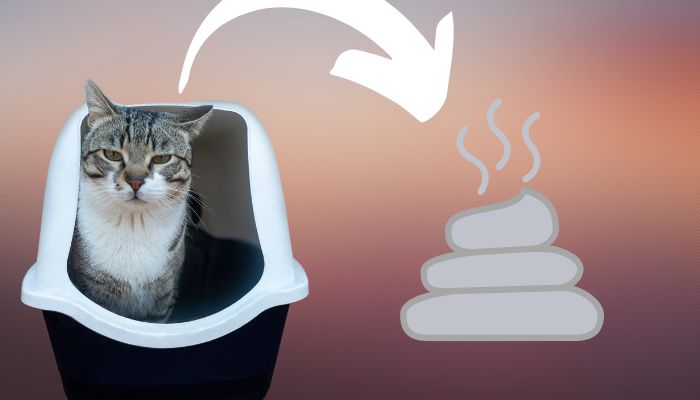
In general, putty-coloured wet clay is caused by a problem relating to the biliary duct or cholecyst because there is a significant absence of bile pigments in the animal’s faeces.
Dark Grey Cat Poop
Dark grey is usually a colour that can be seen in gastrointestinal issues, whether they are caused by mechanical factors, parasites, or bacteria, or worse, a virus.
If the dark grey colour is almost black and tarry, it could also be a sign of intestinal bleeding, particularly one stemming from the lower portions of the digestive tract.
If a foul smell is also noticeable, some fairly dangerous microorganisms may be involved in the condition — so your cat requires immediate veterinary assistance.
Is Grey Cat Poop a Reason to Feel Worried?
The short answer to this question is yes.
Grey cat poop is never something normal, so taking your cat to the animal hospital is definitely recommended.
We suggest that you try to think of all of the behaviours you may have noticed in your cat for the past few days and communicate them to your veterinarian.
In liver failure, for example, cats can show additional symptoms besides their poop having a weird colour.
They may vomit, be weak, lose their appetite for food or water, and they may seem to feel exhausted all the time.
Pancreatic health issues may cause even more worrying symptoms, with your cat being very lethargic and experiencing general malaise.
Typically, grey cat poop is an emergency and should be treated as such, whether it’s caused by an organ dysfunction or exposure to a toxin.
What Does Normal Cat Poop Look Like?
Your cat’s faeces should be brown and firm every day.
Moist or mucus-covered poop is not a good sign and neither is a foul smell.
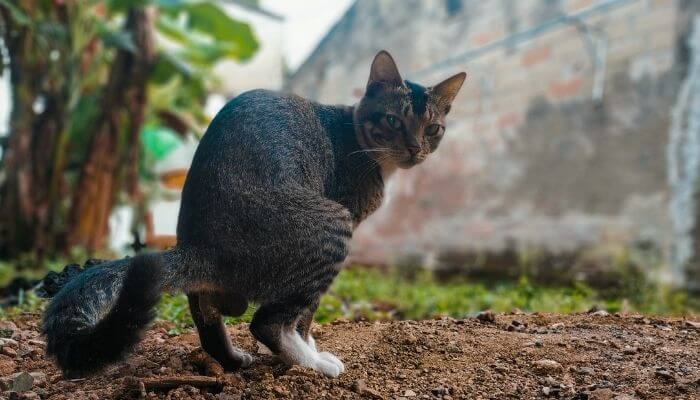
Explosive cat poop can quickly lead to your pet being dehydrated, regardless of their health status or age.
Your cat’s faeces should not be grey, yellow, green, red, or very dark brown, to the point that it looks as if it’s black.
In terms of frequency of defecation, the majority of cats poop once a day.
If your cat has IBD or IBS, they may defecate two to three times a day.
Anything above that frequency should convince you to go to the vet.

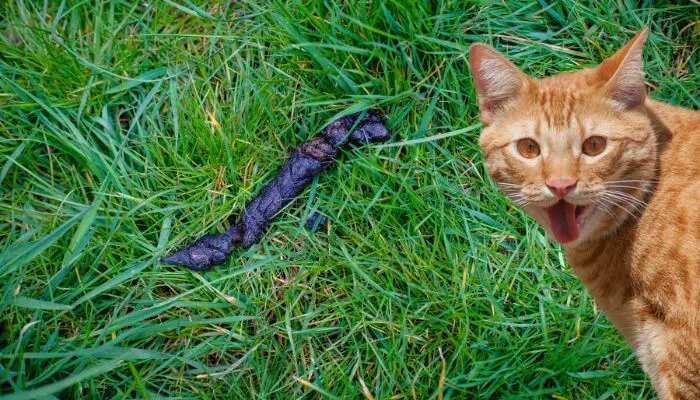
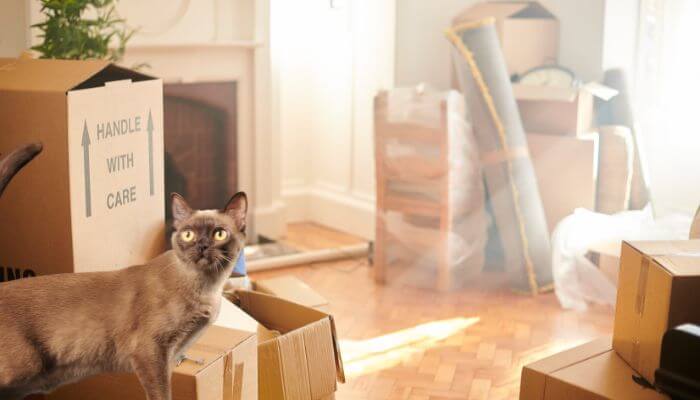
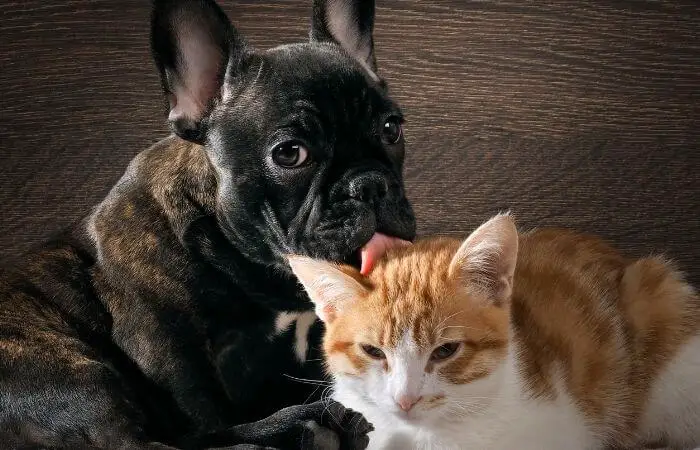
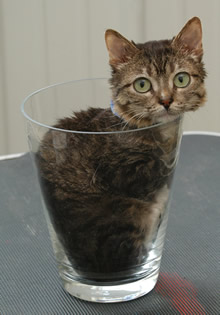


Leave a Comment